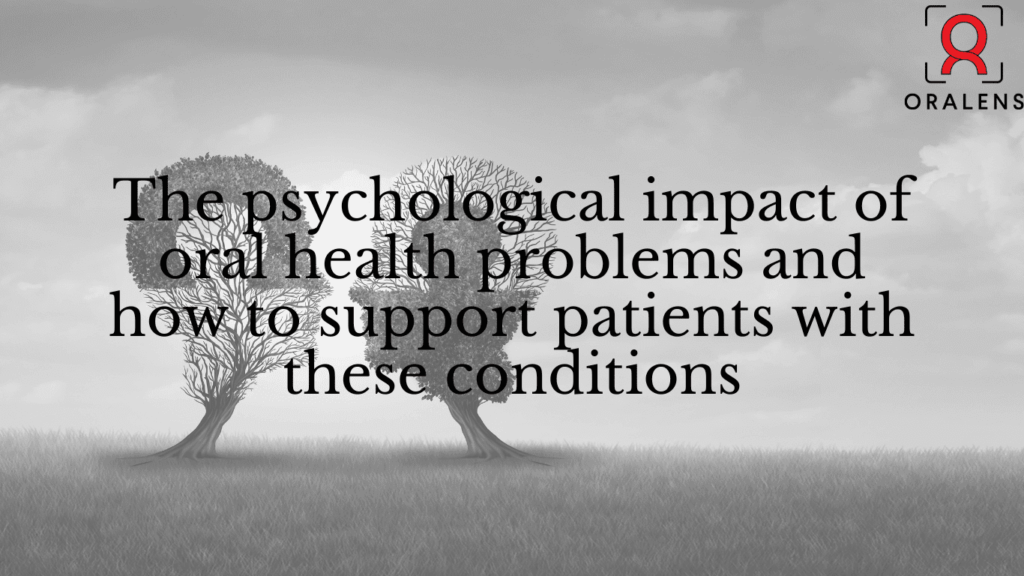
The psychological impact of oral health problems and how to support patients with these conditions
The psychological impact of oral health problems is often overlooked, but it can have a profound effect on a person’s overall mental health and well-being. In this article, we will take a closer look at the psychological effects of oral health problems, as well as provide some tips for supporting patients with these conditions.
The Psychological Effects of Poor Oral Health
Poor oral health can have a significant impact on a person’s psychological well-being. One of the most common psychological effects of poor oral health is a negative body image. People with dirty and bad-looking teeth may feel self-conscious about their appearance, leading to feelings of shame, embarrassment, and insecurity.
This negative body image can lead to a lack of confidence, especially in situations where a person is expected to smile or show their teeth. For example, a person with bad teeth may feel self-conscious about smiling in photos or may avoid smiling altogether in social situations. This can lead to social isolation and a sense of loneliness.
Poor oral health can also affect a person’s professional life. For example, people who work in professions that involve public speaking or meeting with a lot of people may feel self-conscious about their dental appearance. This can lead to feelings of anxiety, fear, and stress, which can harm their performance and overall well-being.
In addition to the psychological effects of poor oral health, there are also physical effects to consider. For example, people with poor oral health may experience tooth pain, infection, and other dental problems that can lead to a reduced quality of life. These physical symptoms can also have a psychological impact, as they can lead to feelings of discomfort, distress, and anxiety.
Supporting Patients with Oral Health Problems
If you are supporting a patient with oral health problems, it is important to recognize the psychological effects of these conditions. Here are some tips for supporting patients with oral health problems:
- Be understanding and empathetic: Patients with oral health problems may feel embarrassed, ashamed, and self-conscious about their dental appearance. It is important to be understanding and empathetic and to provide support and encouragement.
- Encourage regular dental visits: Regular dental visits are essential for maintaining good oral health. Encourage your patient to visit the dentist regularly, and to follow their recommended treatment plan.
- Help them find the right dental care provider: If your patient is looking for a new dental care provider, offer to help them find a dentist who is experienced, compassionate, and supportive.
- Provide emotional support: Patients with oral health problems may experience feelings of anxiety, fear, and stress. It is important to provide emotional support and encourage them to talk about their feelings.
- Educate them about the importance of oral health: Many people are not aware of the importance of oral health, and how it can affect their overall health and well-being. Educate your patient about the importance of oral health, and how they can maintain good oral health through proper diet and hygiene.
By providing support and education, you can help your patient to overcome the psychological effects of oral health problems and improve their overall well-being.
